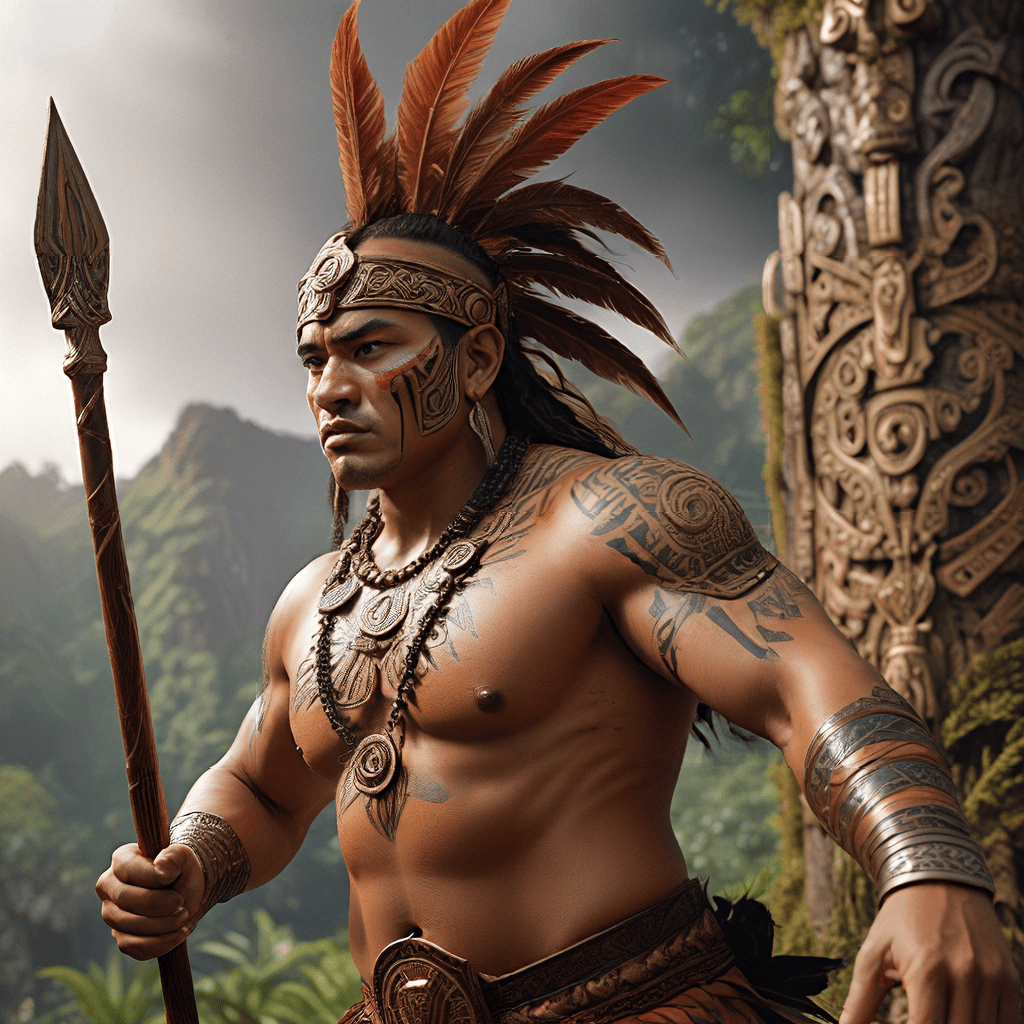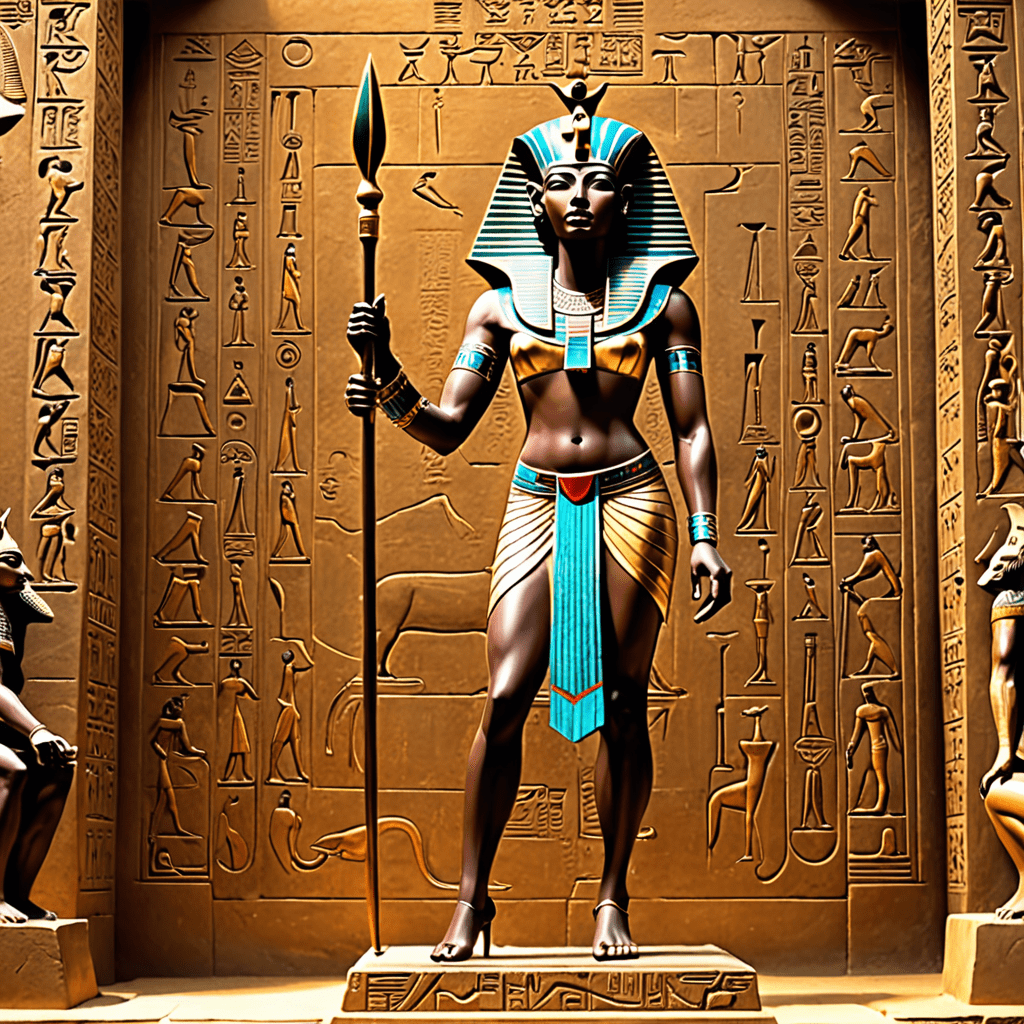Maori Mythological Stories of Quests and Challenges
The Māori people of New Zealand have a rich tapestry of myths and legends that have been passed down through generations. These stories, known as tātai ahiahi (evening tales), are a vital part of Māori culture, offering insights into their beliefs, values, and understanding of the world. One of the most prominent themes found within these narratives is the concept of quests and challenges. These stories often tell of heroes embarking on perilous journeys to overcome obstacles, achieve greatness, or restore balance to the world.
The World of Te Ao Māori: A Tapestry of Myths and Legends
Te Ao Māori, the Māori worldview, encompasses a vast and vibrant mythology. From the creation myth of Ranginui (the sky father) and Papatūānuku (the earth mother) to the adventures of demigods like Maui, these tales are infused with a deep connection to nature, ancestral spirits, and the supernatural. They serve not only as captivating entertainment but also as a powerful means of teaching moral lessons, preserving history, and fostering a sense of community.
The Importance of Quests and Challenges in Maori Mythology
The notion of quests and challenges is central to Māori mythology, reflecting the importance of resilience, determination, and a willingness to face adversity. These stories showcase the Māori belief that life is a journey of constant growth and transformation, where individuals are tested and ultimately strengthened through their experiences. By confronting challenges, heroes in Māori myths demonstrate courage, ingenuity, and compassion, embodying the values that are deeply cherished by the Māori people.
The Role of Gods and Supernatural Beings in Quests
Gods and supernatural beings play a significant role in shaping the challenges faced by heroes in Māori mythology. These powerful entities often act as guides, mentors, or even adversaries, influencing the course of events and testing the limits of human strength and resilience. For example, the god Tāne, known as the god of forests and birds, often appears in stories as a benevolent figure who helps heroes navigate the natural world. However, other deities, like the trickster god Maui, can pose challenges that require cunning and cleverness to overcome.
The Nature of Maori Quests: Tests of Courage, Wisdom, and Compassion
Maori myths often present quests as tests of courage, wisdom, and compassion. These trials frequently involve confronting dangerous creatures, navigating treacherous landscapes, or solving riddles that demand ingenuity and insight. However, the ultimate goal of many quests is to restore balance, heal the land, or protect the community. These tasks require not only strength and cunning but also a deep understanding of the interconnectedness of all things. As such, Maori myths emphasize that true heroism lies not only in physical prowess but also in the ability to act with compassion, wisdom, and a strong sense of responsibility.
The Significance of Challenges in Maori Myths: Overcoming Obstacles and Achieving Transformation
Maori myths often depict challenges as opportunities for growth and transformation. The act of overcoming a significant obstacle, whether it be a physical threat, a moral dilemma, or a test of wisdom, allows the hero to evolve and become a more powerful, knowledgeable, or compassionate individual. This theme is mirrored in the Māori belief that life is a journey of continuous learning and self-discovery. Through trials and tribulations, individuals gain valuable experiences and insights that shape their character and ultimately lead them to a deeper understanding of themselves and their place in the world.
For instance, the story of Maui, the legendary demigod, showcases this principle. Maui, known for his cunning and strength, embarked on many quests, including capturing the sun to slow down its journey across the sky and bringing fire to the world. Each of these challenges tested Maui's limits, requiring creativity, courage, and resourcefulness. Through his trials, Maui not only achieved great feats but also learned valuable lessons about perseverance, innovation, and the importance of balancing power with responsibility. His story serves as a powerful reminder that facing challenges head-on can lead to remarkable growth and positive change.
Famous Maori Quests: Exploring the Epic Journeys of Māori Heroes
Maori mythology boasts a plethora of captivating quests that have been passed down through generations. These stories often revolve around legendary heroes who embark on daring journeys to achieve extraordinary goals. One such hero is Kupe, who is credited with discovering New Zealand, setting the stage for the arrival of the Māori people. His quest, which involved navigating treacherous waters and facing unknown dangers, showcases the resilience and ingenuity of the early Māori explorers. The tale of Kupe serves as a compelling testament to the spirit of exploration and discovery that fueled the expansion of Māori culture.
Another renowned Maori quest is the story of Tūteao, a skilled navigator who sailed to distant lands seeking new knowledge and resources. Tūteao's quest serves as a reminder of the importance of learning and sharing knowledge within the Maori community. These stories, passed down through oral traditions, provide valuable insights into the lives, values, and experiences of the Māori people, showcasing their connection to the natural world and their dedication to exploring new frontiers.
The Themes of Sacrifice, Duty, and Community in Maori Quests
Maori quests are often driven by noble motives, emphasizing the importance of sacrifice, duty, and community. Heroes often embark on their journeys to protect their people, restore balance to the natural world, or avenge a wrong. These quests often demand significant sacrifices, requiring the hero to put their own needs aside to serve the greater good. This theme reflects the strong sense of responsibility and collective spirit that is deeply ingrained in Maori culture.
For instance, the story of Tūmataauenga, the god of war and agriculture, illustrates this theme. Tūmataauenga, driven by a desire to protect his people, embarked on a quest to defeat the fierce monster, Te Fiti, who threatened the safety and well-being of his community. The battle, which ultimately resulted in Tūmataauenga's death, highlighted the importance of sacrifice and the willingness to defend loved ones, even at great personal cost. These stories emphasize that true heroism lies not only in individual strength but also in the ability to act with selfless compassion and a commitment to the welfare of the community.
The Influence of Geographic Landscape and Natural Phenomena on Myths
The geographic landscape of New Zealand plays a significant role in shaping the stories of Maori mythology. The rugged mountains, vast forests, and dramatic coastlines provide a backdrop for many quests, serving as both inspiration and obstacles for the heroes within these tales. Natural phenomena, such as volcanoes, earthquakes, and storms, are often incorporated into myths as powerful forces that influence the fate of individuals and communities.
For instance, the volcanic mountain, Ruapehu, holds a prominent place in Māori mythology. The mountain is often associated with the god Ngātoro-i-rangi, who is said to have descended from the sky, bringing fire and knowledge to the Māori people. The story of Ngātoro-i-rangi and his connection to Ruapehu reflects the Māori understanding of the powerful and unpredictable nature of volcanoes. Many other natural landmarks across New Zealand, from rivers and lakes to forests and caves, hold their own stories within Maori mythology. These myths serve not only as entertaining tales but also as a valuable guide to understanding the complex relationship between the Māori people and their environment.
Contemporary Relevance of Maori Myths and Their Impact on Maori Culture
Maori mythology continues to hold immense relevance in contemporary society. These stories offer valuable lessons about resilience, perseverance, and the importance of cultural identity. They serve as a source of inspiration and guidance for the Māori people, reminding them of their history, heritage, and the values that have shaped their culture.
Modern Māori artists, musicians, and writers continue to draw inspiration from these ancient narratives, breathing new life into traditional stories and adapting these themes for a contemporary audience. These revitalized interpretations of Maori myths help to ensure that these timeless tales remain relevant and engaging for future generations. Maori myths serve as a powerful testament to the enduring spirit of the Maori people, showcasing their resilience, ingenuity, and deep connection to their land and heritage.
FAQ
What are the main themes explored in Maori myths about quests and challenges?
The main themes in Maori myths about quests and challenges include courage, wisdom, compassion, resilience, growth, transformation, sacrifice, duty, community, and the relationship between humans and the natural world.
Why are these myths important to Maori culture?
Maori myths are important to Maori culture because they provide insights into their beliefs, values, and understanding of the world. They teach moral lessons, preserve history, foster a sense of community, and serve as a source of inspiration and guidance.
How are Maori myths relevant today?
Maori myths are relevant today because they offer valuable lessons about resilience, perseverance, and the importance of cultural identity. They inspire and guide the Maori people, reminding them of their history, heritage, and values.
What are some examples of famous Maori quests?
Some famous Maori quests include the journey of Kupe to discover New Zealand, the voyage of Tūteao to seek new knowledge, and the battle of Tūmataauenga against Te Fiti.
Is there a connection between Maori myths and the natural world?
Yes, Maori myths are deeply connected to the natural world. The geographic landscape, natural phenomena, and plants and animals of New Zealand play important roles in shaping the stories and characters within these myths.



